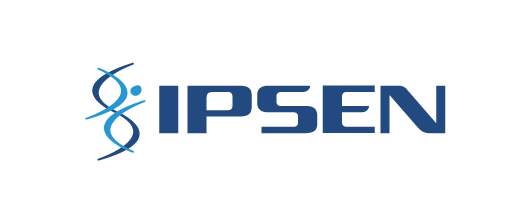
Hepatocellular carcinoma (HCC) is a complex and difficult disease to treat, and a diagnosis is devastating for patients and their families. It is these credentials that make this disease an obvious target for Ipsen in our mission to improve outcomes for patients with solid tumors that have high unmet medical needs.
In 2018, more than 800,000 new cases of liver cancer were diagnosed worldwide, with more than 750,000 deaths.1 HCC is a particularly aggressive and lethal form of liver cancer, and is the most commonly diagnosed, comprising 75-85 percent of cases.1
After a decade of limited research progress, patients now have reason to hope, as new treatments for advanced HCC (aHCC) have emerged in the last two years. However, the rapid expansion of their therapeutic options has left healthcare professionals grappling with the question of how to sequence treatments.
The almost parallel development timeline of new treatments in aHCC resulted in a number of second line (2L) trials being initiated at approximately the same time and with placebo-controlled design. Ipsen recognized the lack of clarity for healthcare professionals in sequencing the new treatments that this resulted in, as they were short of insight into the comparative effectiveness of these new treatment approaches. Initiating a head-to-head comparison would not give healthcare professionals any insight for several years and would result in an unacceptable wait for this patient population.
So, Ipsen turned to a matching-adjusted indirect comparison or MAIC. As a commonly accepted statistical method to compare treatments when head-to-head studies are not available, this approach can unlock the insight in existing randomized controlled trials.
By deploying the MAIC methodology, we were able to take individual patient data from the trial of one treatment to match baseline summary statistics reported from the trial of another treatment. This addresses several of the limitations that arise in comparisons based on aggregate data only; as it can simulate more closely how treatments may have performed if compared directly.2 After matching, treatment outcomes were compared across balanced trial populations to provide the comparative evidence that can support clinician prescribing. In a 2L HCC clinical landscape dominated by placebo-controlled trials, a MAIC provides a matched comparison in the similar patient populations and helps clinicians decide how to best manage patients in a landscape where several new treatments options have become available in parallel.
We are delighted to be sharing this data for the first time at the 13th International Liver Cancer Association (ILCA) Conference in Chicago between 20-22 September. As the largest meeting focusing on the latest scientific advances and best practices for liver cancer, this international forum is the perfect stage to present these new insights in the management of aHCC.
With the MAIC approach, we hope to enable healthcare professionals to have better clarity around treatment outcomes, by providing additional information to guide their treatment decisions in 2L HCC.
Ipsen will continue to put better patient outcomes at the forefront of all our activities and will pursue any innovation that can help improve the way patients living with liver cancers and its poor survival rates are managed.
- Bray et al. Global cancer statistics 2018: GLOBOCAN estimates of incidence and mortality worldwide for 36 cancers in 185 countries. CA: A Cancer Journal for Clinicians (2018) 68:394-424.
- Nash et al. Secukinumab Versus Adalimumab for Psoriatic Arthritis: Comparative Effectiveness up to 48 Weeks Using a Matching-Adjusted Indirect Comparison. Rheumatol Ther (2018) 5:99–122









